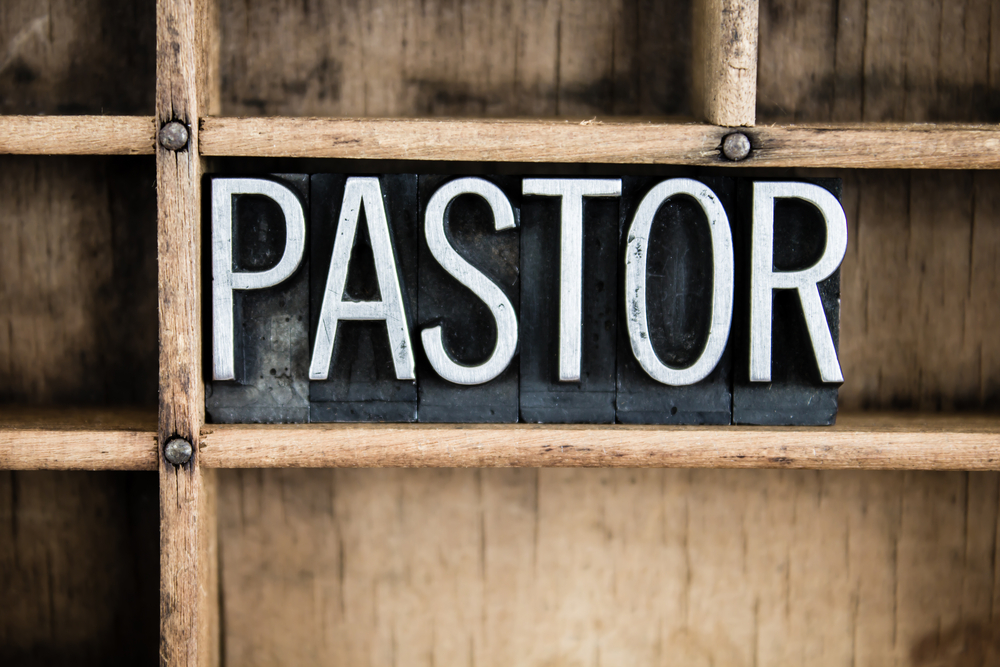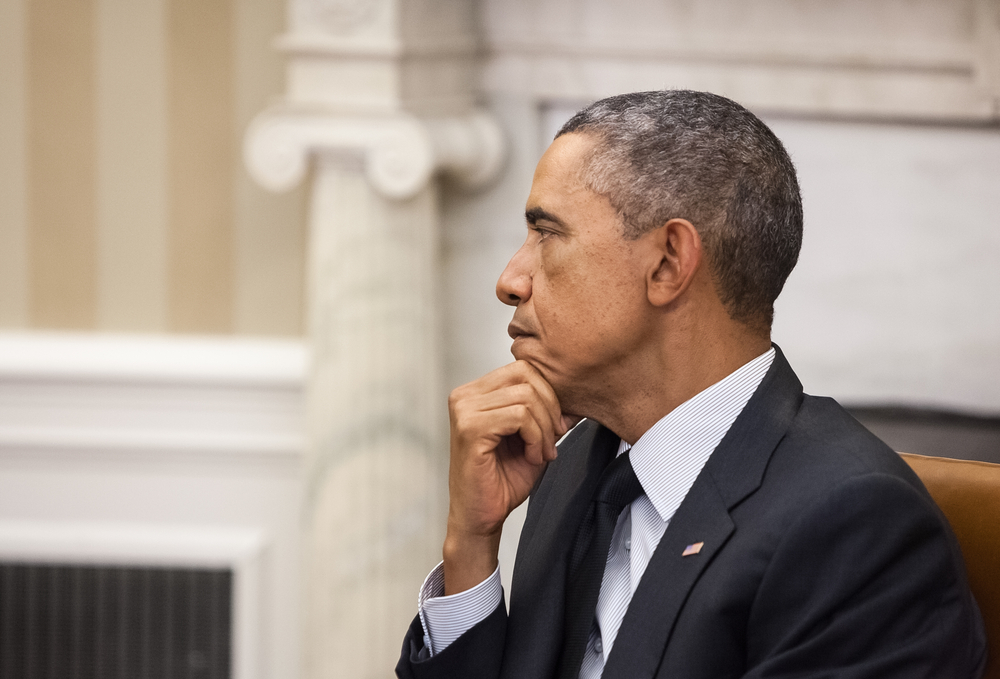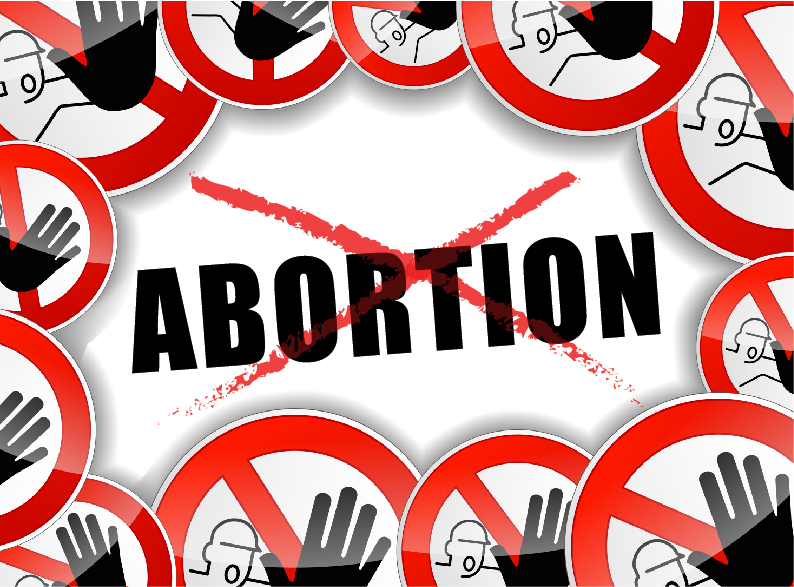
by Brian Hobbs | Aug 6, 2015
A person almost could go his whole life these days without calling on a pastor. Think of it. If he’s getting marriage, he’ll call a justice of the peace. When he goes through a life crisis, just hire a professional counselor.
Need some weekly inspiration? Just look to TV personalities or pick-me-up books or blogs. If he becomes ill, hope that a hospital staff member will visit and care. If he’s in deep trouble, he’ll just contact an attorney. Finally, when he dies, a licensed funeral director will handle all of his “final needs.”
Yes, society today has outsourced much of what pastors do. I suggest that is a wholly bad thing. Despite these particular functions of the office of the pastor, there is no true substitute to having someone you call “pastor.”
The office of pastor dates all the way back to the early Church. The Bible says, “And He personally gave some to be apostles, some prophets, some evangelists, some pastors and teachers, for the training of the saints in the work of ministry, to build up the body of Christ, until we all reach unity in the faith and in the knowledge of God’s Son, growing into a mature man with a stature measured by Christ’s fullness” (Eph. 4:11-13).
Yes, a counselor can be of great help, but pastors are ministers of the Gospel and speak from the power of God’s Word, which alone can give peace. Sure, you can get a secular wedding, but apart from the Church, a wedding loses its sacred quality and sense of accountability.
Beyond these necessary duties, the pastor does so much more. On my grandmother’s fridge a sign hangs that says, “No one notices all I do until I stop doing it.” That idea applies to pastors. Beyond preaching on Sundays, officiating weddings and funerals, making hospital visits and sharing the Gospel with people who do not know Christ, pastors do so much more.
The office of the pastor was instituted by God for our good (1 Tim. 3). Because of this, I recommend three life actions you can do now to take God up on this gift:
- Find a biblical, godly man at a Bible-believing church (Southern Baptist for example), where there’s a man leading, feeding and caring for the flock that you can call “pastor.”
- Pray for your pastor every day. The devil is walking about like a dangerous lion seeking to devour people, and the pastor is an easy target. Pray that the Lord would protect the pastor and his family.
- Look to the One above the pastor. Even the best pastor is human and temporary. No man lives forever, and no man is without sin. Every good pastor is trying to get you to seek the Lord Jesus Christ with all of your heart, so take his advice and live that way.
If every pastor were to disappear overnight, the world would never be the same. No matter how well-qualified, no other vocation can truly replace the ones we call “pastor,” and we need pastors more than ever today.

by Brian Hobbs | Jul 29, 2015
It has been said that today’s young adults tend to be more conservative on the pro-life issue and more liberal on the marriage issue. Millennials would be likely to have had a rainbow flag with their online profile after the Supreme Court ruling only to be railing against Planned Parenthood a few weeks later.
Opinion polls support this odd pair of views on the big two issues among young adults, as well. A recent Pew Research poll revealed that some 70 percent of people born after 1980 favor same-sex marriage, while another poll from the Public Religion Research Institute showed that in 2012, “only 37 percent considered abortion morally acceptable.”
In an interesting discussion on this subject at the 2015 Gospel & Sexuality Conference hosted by the Baptist General Convention of Oklahoma (BGCO), Southern Baptist leaders Albert Mohler, Jr. and Russell D. Moore agreed that the thinking behind their positions on these two issues is not deeply held (view their conversation here).
In other words, when pressed in the particulars about the “hard cases” in which some people claim abortion might be justifiable, young adults suddenly lose their “pro-lifeness.” Conversely, when you start talking about messy issues connected to same-sex marriage such as homosexuals adopting children, likewise, the young adults lose their enthusiasm for support.
What gives? Some say young adults believe this way, not because of arguments or what they have been taught; it is because of what they have caught, meaning what they have observed in real life.
For example, most people born after 1980 grew up seeing ultrasound photos of their brothers and sisters, cousins and friends on a refrigerator, as Moore has pointed out. Related to the marriage issue, they have lived through a total meltdown of marriage, through casual divorce, family breakdown and widespread cohabitation. What’s more, many young adults have a friend who is gay, which greatly affects their views on same-sex marriage.
Of course I am not saying all young adults come to their views this way. Many of the millennials and young adults I know are some of the most hard-thinking, biblically-serious people I’ve ever met.
Will this paradox of views on abortion and marriage be permanent for the millennial generation? It is highly doubtful. If history teaches us anything, it is that people, even groups of people, change over time.
The Baby Boomer generation, for example, embraced and embodied the sexual revolution to their own detriment. Yet the sexual revolution will never keep its promises, and so many fled from it back to God.
Similarly, we know that the glowing promises of same-sex marriage will not fulfill the desires of the people involved and will not be as clear-cut and warm and fuzzy as every rainbow-flag-wearing person was promised.
With regard to the abortion issue, we remain hopeful that this generation of young people will not just think pro-life, but also will act like it. This includes, yes, working for laws that protect life in the public square; but also takes the form of personal action. The most pro-life thing a person can do is to bear and/or adopt children within the context of marriage.
Time will tell how Millennials grow and change on the issues of abortion and marriage. If the Lord tarries, their generation will not have the last word on the issue, either. So take heart and take time to invest in young people. For the young people of today are the mothers and fathers and leaders of tomorrow.

by Brian Hobbs | Jul 22, 2015
When President Barack Obama announced his viewpoint on same-sex marriage has “evolved” in 2012, from being against it to being for it, it became okay for large parts of the population to embrace same-sex marriage as well.
Thus far, our President has been an outspoken proponent of Planned Parenthood, the nation’s largest abortion provider. This month, Planned Parenthood has been exposed by a series of undercover videos showing that their organization, at the highest levels, is aware of and is involved in the harvesting and sale of “fetal tissue” from children aborted in their clinics.
Mr. Obama has not, to date, publicly commented on the issue. Yet some surprising voices are rising up against Planned Parenthood and calling for the removal of tax dollars to the organization, including USA Today columnist Kirsten Powers. I am hoping and praying others will add their voices, including our President.
You see, we are not asking you, Mr. President, to reverse your overall commitment to abortion on demand (though we want that). We are not expecting that you would lead the charge to implement laws that restrict abortion and protect unborn life (though we would applaud you at this).
What we are hoping and praying for is that you will see that taxpayer dollars—to the tune of a half billion dollars annually—should be taken away from Planned Parenthood.
You wield great power as the President, influencing the opinions of many. You have control of the Department of Justice, who along with Congress, can officially investigate Planned Parenthood’s activities. Your Affordable Care Act program theoretically could be expanded, along with private and other medical organizations, to take care of any non-disputed services Planned Parenthood says they offer, such as cancer screens.
But even more than this, your change of course on taxpayer-funded abortion would signal an evolution of views that we all could be proud of, one that is more respectful of life at every age and stage. Mr. President, please re-consider this issue of taxpayer funding for Planned Parenthood. For the sake of taxpayers; for the sake of women and children; for the sake of our nation, which should always bring down the haughty and raise up the weak.
Whether or not Mr. Obama’s commitment to Planned Parenthood will change and evolve, time will tell. In the meantime, if you have been a supporter of Planned Parenthood for a long time or a little time—with these new startling revelations—are you willing to reconsider your view?

by Brian Hobbs | Jul 16, 2015
I know several women who have had an abortion, each of whom have regretted their decision and found forgiveness in Christ Jesus. Without exception, I feel an attitude of sympathy and compassion for women who seek abortion, as many are bullied into the fateful decision by guys, lies and a culture that presents abortion as a way to erase a problem.
Meanwhile, I feel red-hot disdain for abortion doctors and, more so, the very abortion industry, making possible surgical and chemical abortions on demand. This week, the leader among that abortion industry, Planned Parenthood (PP), was exposed for the gruesome practice of harvesting and selling body parts, so-called fetal tissue, from aborted babies.
This practice, which PP contends is legal and defensible, is a moral outrage. The United States Congress can and is investigating them for this grizzly practice, which is only proper, seeing as hundreds of millions of taxpayer dollars go to support PP each year.
Now, PP officials will try to make you think taxpayer dollars go to support their more politically-correct services, such as cancer health screens. But don’t let them fool you. Money in any organization is fungible. To say those tax dollars don’t pay for abortion is like saying to someone in a contaminated swimming pool, those dangerous chemicals are only on one end of the pool.
Taxpayer money is what keeps Planned Parenthood propped up, and it’s time for them to lose public funding. For any reported good they do, those services to the public can be handled by more reputable groups, localities and entities. The nation’s largest abortion provider has survived too long on your tax dollars and mine.
Thinking about the largest issue of abortion as a whole, here are three prayer points for Christians and others whose consciences have been shocked by this recent video expose:
- We pray that the hearts of people involved in the abortion industry can change (as we saw with Abby Johnson);
- We pray that the supply of abortion in America would end, with laws and culture ending abortion-on demand; and
- We pray that the demand for abortion would end, as women in a crisis pregnancy would know they can rely on churches and communities to help them financially, spiritually and relationally, to give the child birth.
Planned Parenthood is the flagship of the culture of death in America. The Church, meanwhile, is the flagship of the culture of life. Together we pray this moment of outrange will lead to an awakening moment in which every life—born and unborn—is valued.

by Brian Hobbs | Jul 14, 2015
Following the U.S. Supreme Court’s mandating of same-sex marriage in all 50 states, millions of social media users changed their user profile pictures to rainbow flags, the de facto symbol for the gay rights movement.
Many people now cringe at the very sight of anything rainbow-colored, because it flies in the face of their deeply-held religious convictions. I admit that a small part of me cringes, too, at the sight of the rainbow flag. But I choose to love the sight of rainbows, and here’s why.
The real promise and meaning
According to the Bible, the first rainbow was given by God as a sign to Noah that He would never again flood the whole world in judgment (Genesis 9). The sudden appearance of a rainbow in the sky, each time it appears, shows that God always keeps his promises.
It’s not just in Genesis we read about rainbows. The prophet Ezekiel associated the appearance of a rainbow with God’s presence (Ezekiel 1:28). The Book of Revelation speaks to the power and innate glory of rainbows. “I saw another strong angel coming down out of heaven, clothed with a cloud; and the rainbow was upon his head, and his face was like the sun, and his feet like pillars of fire” (Revelation 10:1) Some interpret this angel to be Jesus Christ, while others just say the angel represents God as a messenger. Either way, the rainbow upon his head isn’t some agenda; it’s a sign of God’s truth and radiance.
While most rainbow-clad social media users believe they are pronouncing their support for gay marriage with a rainbow, they are—whether they realize it or not—actually declaring the glory of God and His promises.
Multi-colored?
Why is the rainbow flag, which was created less than 40 years ago, recognized as the universal symbol for the gay rights movement? The theories range from wanting to show a multitude of diversity to a vague reference to the Judy Garland song.
While the gay rights movement may have started out calling for tolerance, much of it has become too intolerant today. A rainbow shows a multitude of colors, not just one. Why would a movement whose symbol is a rainbow force everyone to have the same opinion? In a democratic-republic like ours, we need a return to plurality where there is a civil respect when people disagree.
Still pretty
“Look, Daddy, a rainbow,” said my two-year old recently. She had arranged some nail polish bottles into colors and liked the way it looked. I felt my heart sink, then raise. She is right. Rainbows are pretty, and children still recognize that.
Psalm 8 says, “O Lord, our Lord, how majestic is your name in all the earth! You have set your glory above the heavens. Out of the mouth of babies and infants.”
Children, who, yes, share a sin nature from Adam and the Fall, still do not have their perspective tainted to the degree most young adults and adults do, especially we modern-day people.
The Bible says, “To the pure, all things are pure, but to those who are corrupted and do not believe, nothing is pure. In fact, both their minds and consciences are corrupted” (Titus 1:5). Through her pure eyes, my daughter taught me that day that rainbows are still pretty to look at and should bring a smile to our faces, not a grimace.
In conclusion, the rainbow does not belong to any political movement but to God. And I predict that, centuries from now, after the rainbow flags fade, few will remember the rainbow was ever used as part of the LGBT movement, and countless people will remember the true meaning of the rainbow.
“The grass withers and the flowers fall, but the word of our God endures forever.”—Isaiah 40:8




